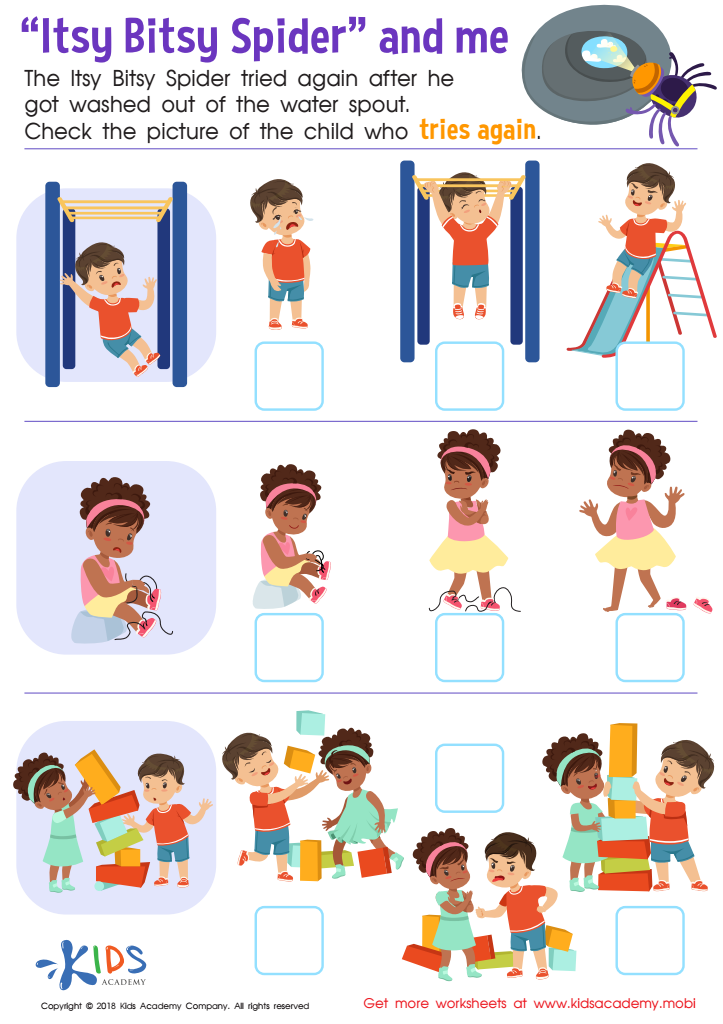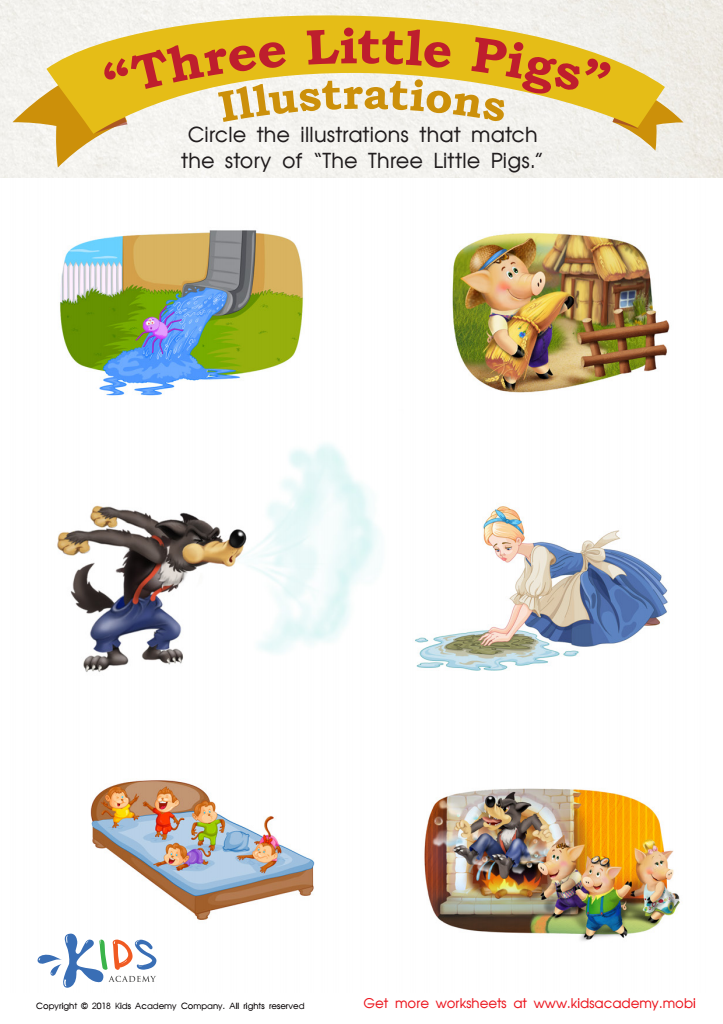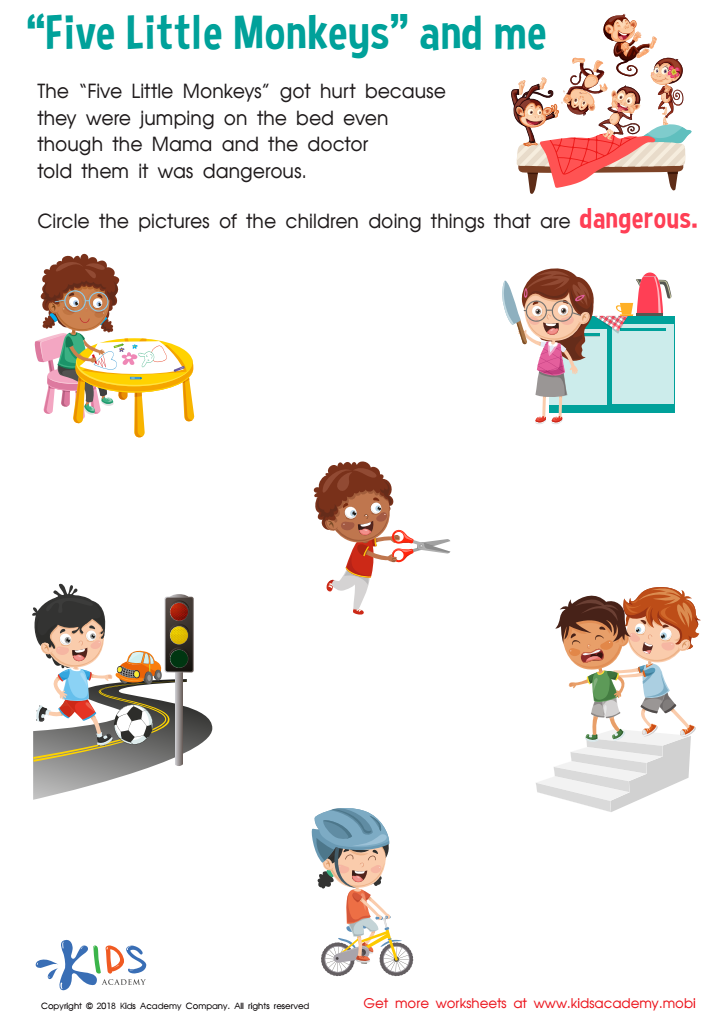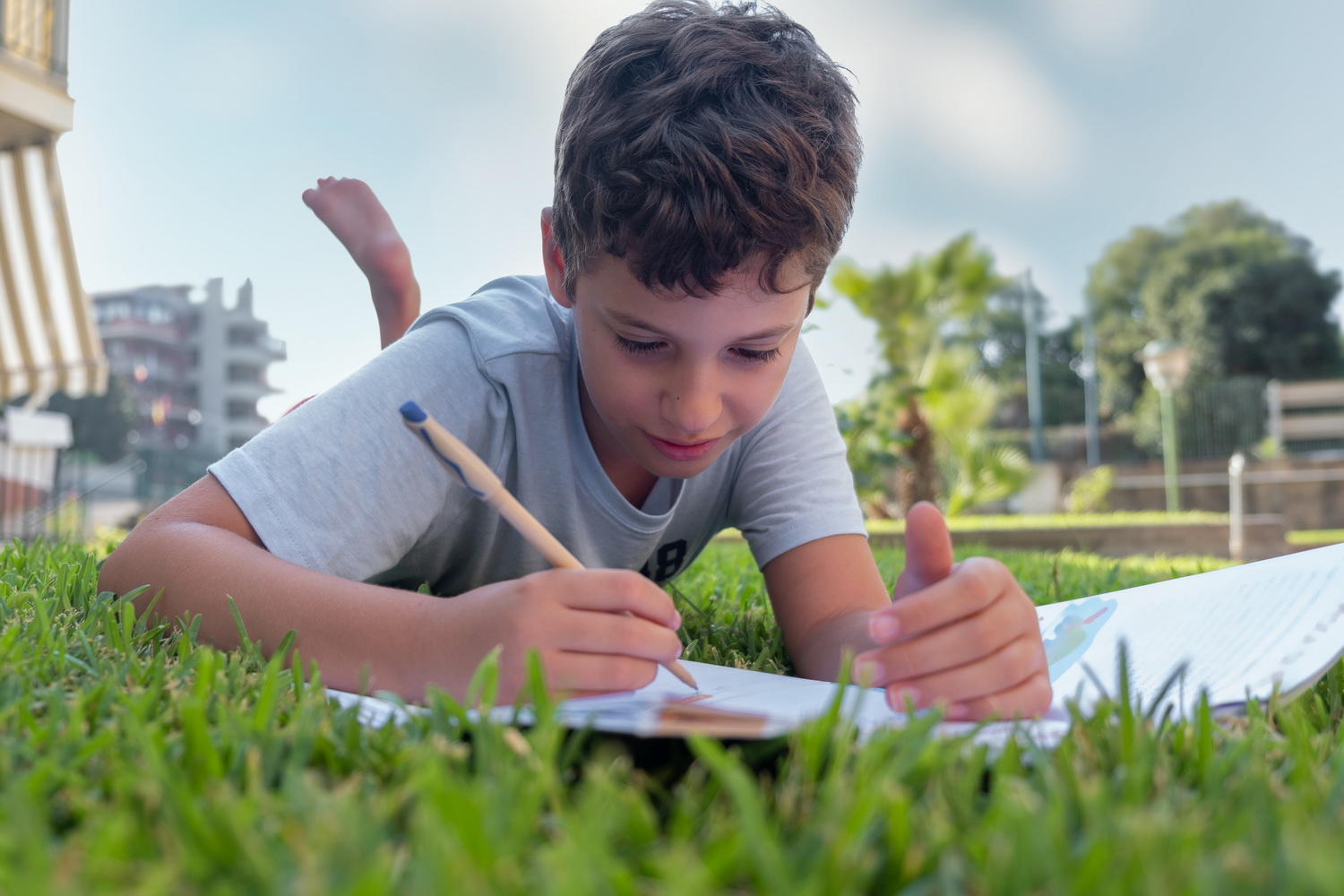Sequencing Skills Reading Fiction Worksheets for 3-Year-Olds
3 filtered results
-
From - To
Enhance your 3-year-old's reading journey with our engaging Sequencing Skills Reading Fiction Worksheets! Tailored specifically for preschoolers, these worksheets foster essential literacy skills by helping children understand the order of events in stories. Kids will enjoy colorful visuals and simple text to guide them in sequencing story elements, encouraging creativity and comprehension. Perfect for home or classroom use, these worksheets promote critical thinking as children learn to narrate and predict story developments. Start nurturing your child's reading skills today and watch their confidence grow as they master sequencing with our fun and interactive activities!


Itsy Bitsy Spider and Me Worksheet


Three Little Pigs: Illustrations Worksheet


Five Little Monkeys and Me Worksheet
Sequencing skills are crucial for 3-year-olds, especially when it comes to reading fiction. These skills involve understanding the order of events in a story, which is foundational for comprehension and critical thinking. When parents and teachers nurture these skills, they lay the groundwork for effective reading and cognitive development.
Young children learn to follow a narrative structure, identifying beginning, middle, and end in stories, which enhances their memory and retrieval of information. Engaging with stories allows children to make predictions about what happens next, fostering imagination and creativity. By discussing the sequence of events, educators and parents can prompt children to express their thoughts verbally, improving language and communication skills.
Moreover, strong sequencing abilities support many essential life skills, from problem-solving to planning. As 3-year-olds grow and encounter more complex stories, a solid foundation in sequencing enables them to navigate social scenarios and academic challenges with greater ease.
In short, parents and teachers should prioritize sequencing skills in reading fiction to cultivate comprehensive reading abilities, emotional intelligence, and a love of storytelling, setting the stage for lifelong learning and academic success.
 Assign to My Students
Assign to My Students
















